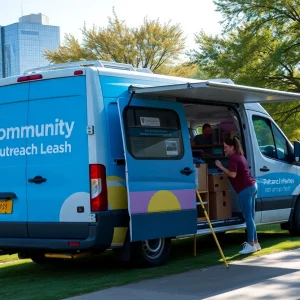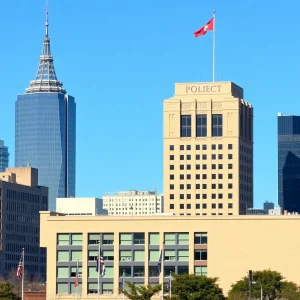Bowling Green, Ky. – A Community Divided Over Amendment 2
Just a day after a heated election, the air in Bowling Green is still buzzing with discussions over the recent defeat of Amendment 2. This proposed amendment aimed at allowing state lawmakers to allocate public tax dollars to private or charter schools, but voters had a different idea. The outcome, a decisive rejection, has left many questions about the future of education funding in Kentucky.
The Announcement
On Tuesday, October 29, 2024, Lt. Gov. Jacqueline Coleman held a press conference at UAW Local 2164 in Bowling Green to address the implications of the amendment’s defeat. “Kentucky voters have once again definitively stated that public dollars belong only in public schools,” Coleman proclaimed, echoing sentiments shared by many public education advocates. It was a moment that many in attendance felt was a significant victory for public education in the state.
The debate surrounding Amendment 2 garnered significant attention leading up to the polls, yet it became evident that the clarity of its implications for public schools resonated with voters across various communities, both rural and urban.
A Closer Look at the Amendment
The proposed constitutional amendment was designed to remove legal barriers preventing tax dollars from being used for private schooling. Prominent figures in the Republican Party, including U.S. Sen. Rand Paul, threw their weight behind the initiative, arguing that it would empower parents, especially those from low- and middle-income households, to choose the best education options for their children. “Every child deserves to attend a school that helps them succeed,” Paul stated at a rally in support of the amendment.
Supporters envisioned a future where Kentucky’s legislators could craft policies allowing for tax credit scholarships, education savings accounts, or vouchers to facilitate parental choice. However, opponents, led by Lt. Gov. Coleman, highlighted potential pitfalls, expressing concerns that public funds could end up diminishing the quality of public education. Coleman warned that this kind of funding scheme might turn into a situation where taxpayer money supports families already in private schools rather than helping those in need of assistance.
Community Reactions
As the dust settles on the election, residents of Bowling Green find themselves divided and discussing what this means for their schools. Parents and educators from both urban and rural districts voiced strong opinions on the matter. Many pointed out that public schools serve not just as educational institutions but as crucial centers for community development and support. In numerous rural areas, public schools are among the largest employers, and shifting funds could have disastrous local implications.
Samuel Towe, an 8-year-old who attended a rally in support of the amendment with his family, held up two foam fingers shaped like a “2,” oblivious to the far-reaching implications of the proposal as he supported what he thought was a chance for a better education. This moment reflects the innocence of childhood amidst a complex political dialogue, reminding all of the real lives impacted by these decisions.
Looking Ahead
As supporters of Amendment 2 regroup after their loss, many are reflecting on the future of education funding in Kentucky. The intense debates surrounding the amendment highlight broader questions about the direction of public education and state funding. Meanwhile, Coleman and Gov. Andy Beshear reaffirm their commitment to ensuring that public funds stay where they are intended — in public schools.
This election has certainly marked a turning point in how education funding might be discussed moving forward. With the backing of widespread voter sentiment leaning toward public schools, it’s clear that discussions on education funding will continue to evolve in Kentucky. What’s next for the Commonwealth? Only time will tell, but one thing’s for sure — the voice of the voters will remain central in shaping the educational landscape.






